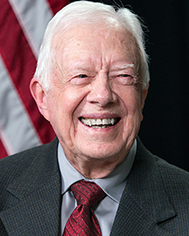Remember 85% of people in the prison system are black,
and Gov. Nathan Deal recommends during the week of Juneteenth celebrations,
according to David Rodock in the VDT today,
Parolees to replace migrants?
Gov. Deal says put probationers in fields
 With the recent exodus of undocumented Hispanic migrant workers leaving
Georgia to avoid the consequences of House Bill 87, Gov. Nathan Deal made
a statement on Tuesday suggesting that probationers could potentially fill
the approximately 11,000 open jobs in the state’s agricultural economy.
With the recent exodus of undocumented Hispanic migrant workers leaving
Georgia to avoid the consequences of House Bill 87, Gov. Nathan Deal made
a statement on Tuesday suggesting that probationers could potentially fill
the approximately 11,000 open jobs in the state’s agricultural economy.
“Specifically, I asked Department of Corrections Commissioner Brian
Owens and (Department of Agriculture) Commissioner Gary Black to review
the current situation and offer possible options,” said Deal in his
statement. “Commissioner Owens has indicated that there are 100,000
probationers statewide, 8,000 of which are in the Southwest region of
the state and 25 percent of which are unemployed … I believe this
would be a great partial solution to our current status as we continue
to move towards sustainable results with the legal options available.”
The potential move would allow probationers who are unable to find work
to have a source of income, provided they are able to meet employer
standards. Income can then be used to pay probation fines, along with
other state fines that are a requirement of their probation sentence.
This fits right in with Joe Pritchard’s rumored suggestion
to replace animal shelter employees with interns.
Hey, if there’s one thing Georgia is good at, it’s
locking up more people
even while other states realize they can’t afford to do that anymore.
So if probationers don’t want to pick onions, lock ’em up again,
in the new private prison VLCIA wants to build in Lowndes County!
That will benefit private prison executives and investors and not
us in Lowndes County, but hey, that will serve those immigrants right!
-jsq
With the law passed and ready for implementation, many rural farmers—especially in Central and South Georgia—are taking notice to the exodus of migrant workers and immigrants which has left some farmers without workers to pick crops.
Valdosta’s Ellis Black who represents parts of Lowndes County as a state representative helped to pass Gov. Nathan Deal’s conservative and punitive agenda and consequently it has contributed to drive an increasing number of migrant workers out of the Peach State.









